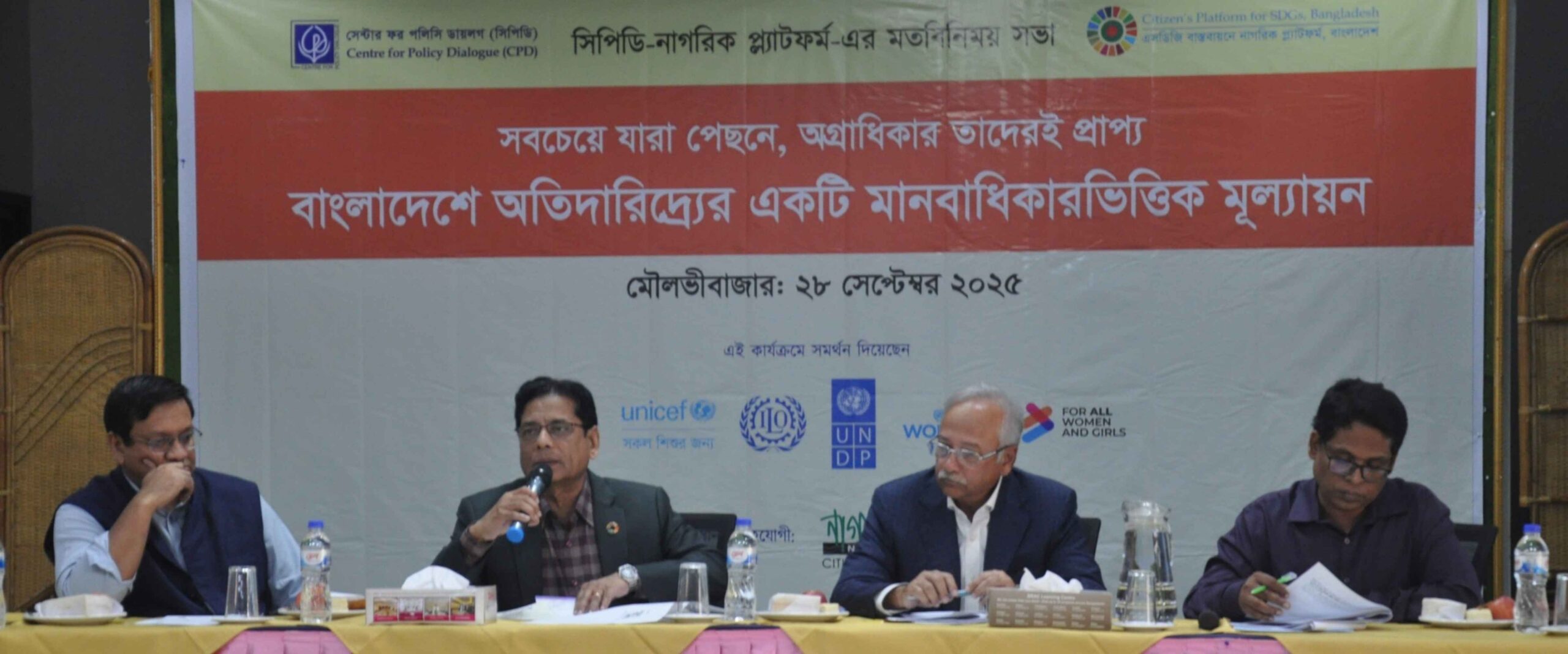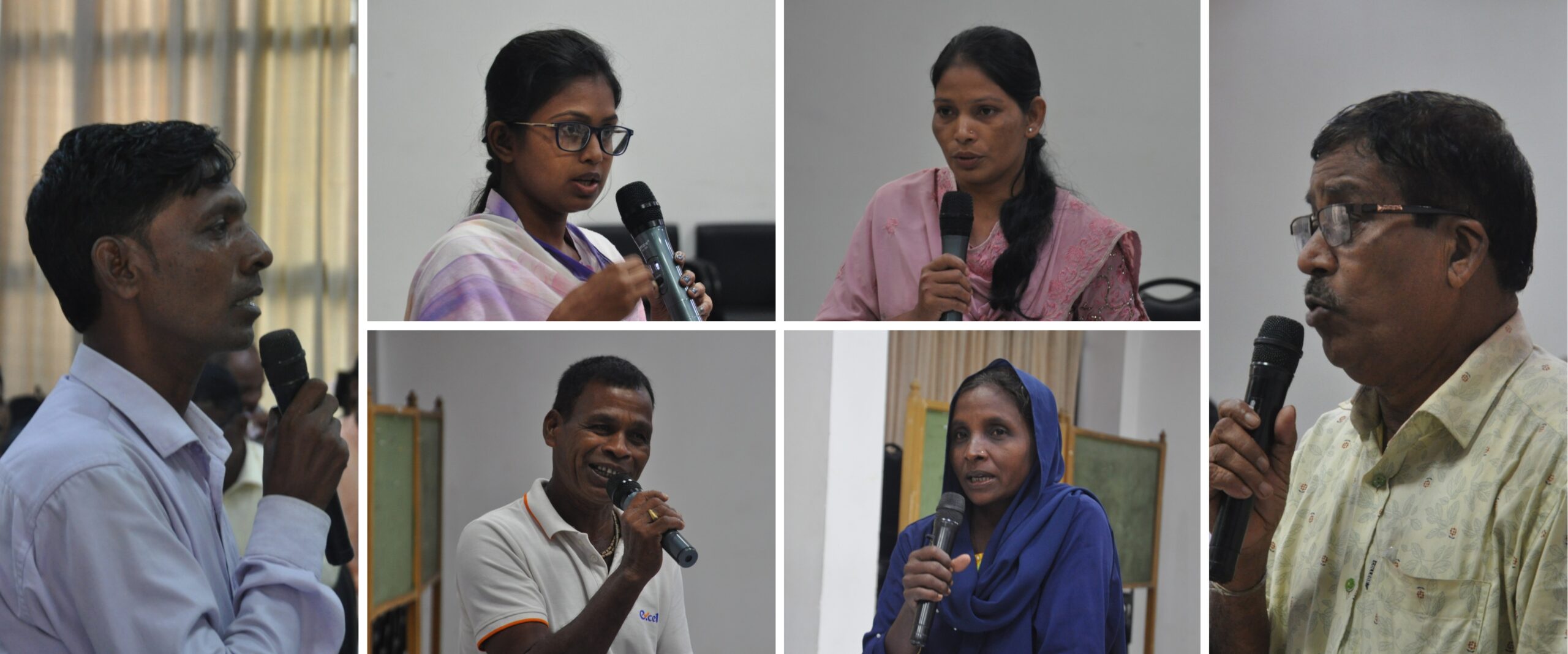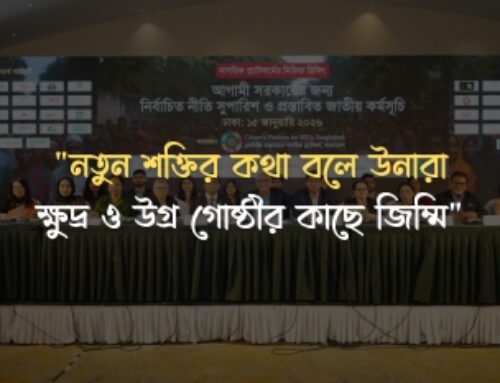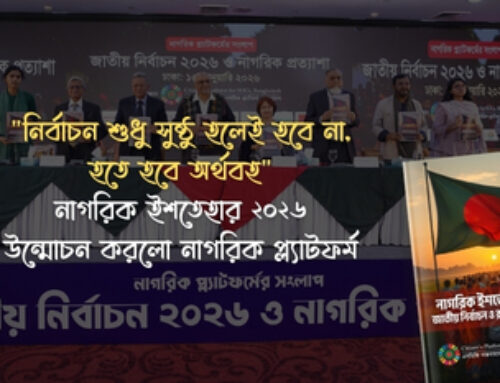
The Centre for Policy Dialogue (CPD) is carrying out a research initiative titled “Reaching the Furthest Behind the First: A Human Rights-based Approach to Confront Extreme Poverty in Bangladesh.” The study focuses on five vulnerable occupational groups who, despite being employed, continue to live below the poverty line. These communities often remain undocumented, and their voices are seldom reflected in national policy discussions. Among these marginalised groups, tea garden workers form a particularly significant population.
As part of this initiative, CPD and the Citizen’s Platform for SDGs, Bangladesh, jointly organised a stakeholder consultation in Sreemangal on 28 September 2025. The consultation aimed to share preliminary research findings on the socio-economic challenges faced by tea garden workers and to foster open dialogue with local stakeholders. The session was chaired by Professor Mustafizur Rahman, Distinguished Fellow, CPD, and Core Group Member, Citizen’s Platform. The preliminary findings were presented by Mr Towfiqul Islam Khan, Additional Director (Research), CPD.

Participants noted that the lack of sufficient educational institutions within tea garden areas remains a serious barrier to children’s education. In many estates, formal schools are either unavailable or lack adequate infrastructure and teaching resources. The shortage of trained and qualified teachers was identified as a major concern, alongside the absence of schools within accessible proximity. Introducing an education quota system for children of tea garden workers in public schools and colleges was recommended to expand access and reduce structural exclusion.
Inadequate access to healthcare services was another key issue raised. Estate clinics, where they exist, are often under-resourced, and access to government health facilities remains limited due to distance, transport costs, and lack of awareness.
Participants also highlighted the scarcity of safe drinking water, as many communities rely on unsafe sources, leading to frequent outbreaks of waterborne diseases.
A growing need for Technical and Vocational Education and Training (TVET) was underscored, particularly for young people facing limited employment opportunities beyond low-paid labour in the tea gardens. Targeted TVET programmes were suggested to help diversify income sources and build local resilience.
While workers are eligible for small retirement allowances, the absence of a comprehensive social protection system leaves many households vulnerable. Concerns were raised about corruption and favouritism among certain community leaders and estate intermediaries, which further undermine equitable access to services.
Maternity benefits were identified as an urgent area for reform. Women workers receive little to no formal support during or after pregnancy. Participants called for maternity leave to be extended to six months, given the physically demanding nature of tea garden work, and emphasised the need for structured maternal healthcare services within the estates.
The consultation was attended by Mr Kamran T Rahman, Chairman, Bangladesh Tea Association, and Mr Mahabbat Hossain, Deputy Director, Divisional Labour Office, Sreemangal, Moulvibazar, as special guests. The event brought together tea garden workers, government officials, development practitioners, and civil society representatives.
This initiative received technical and financial assistance from UNICEF, the International Labour Organization (ILO), UNDP Bangladesh, the Office of the UN Resident Coordinator, and UN Women, with local implementation support from Nagorik Uddyog.





Leave A Comment